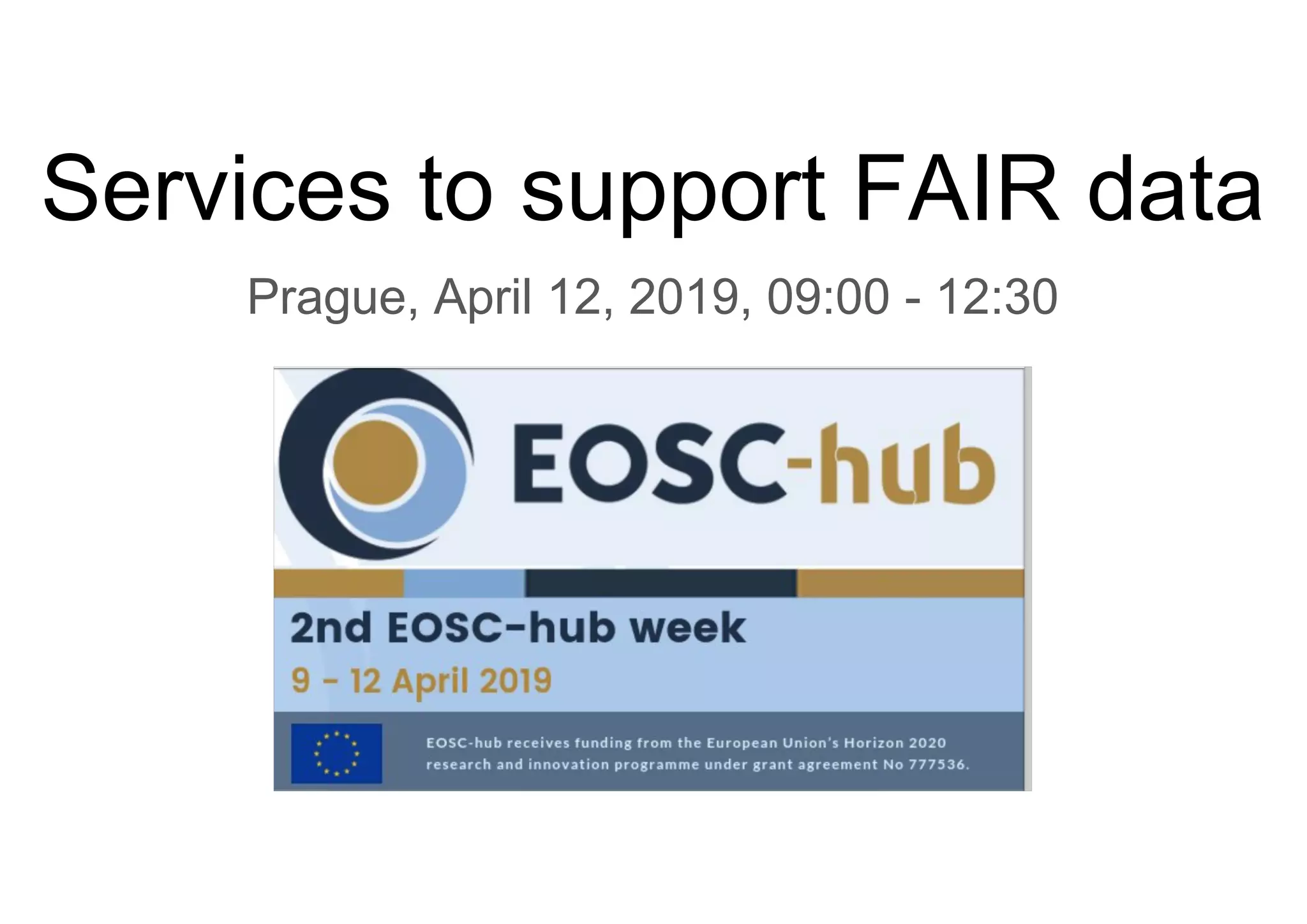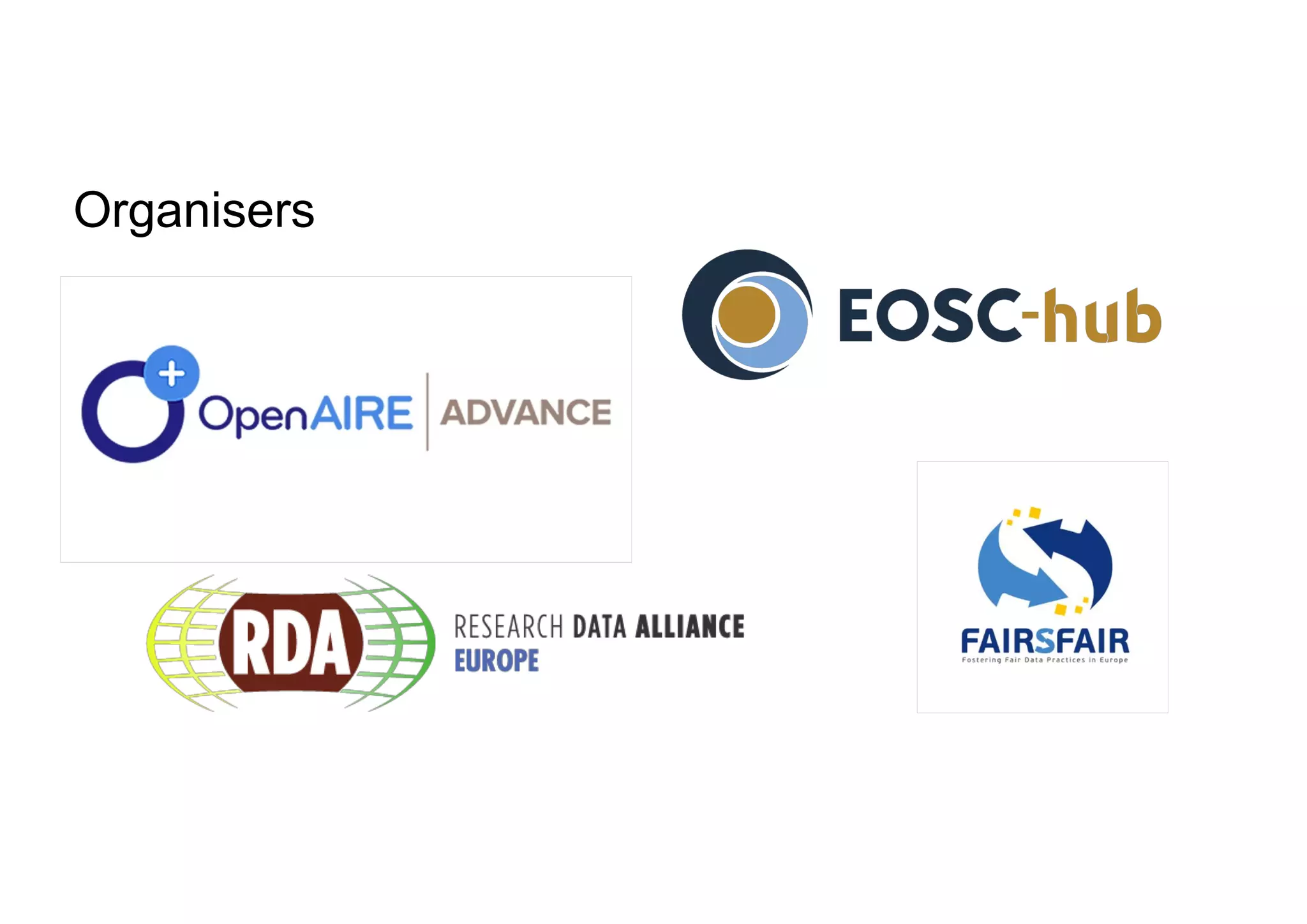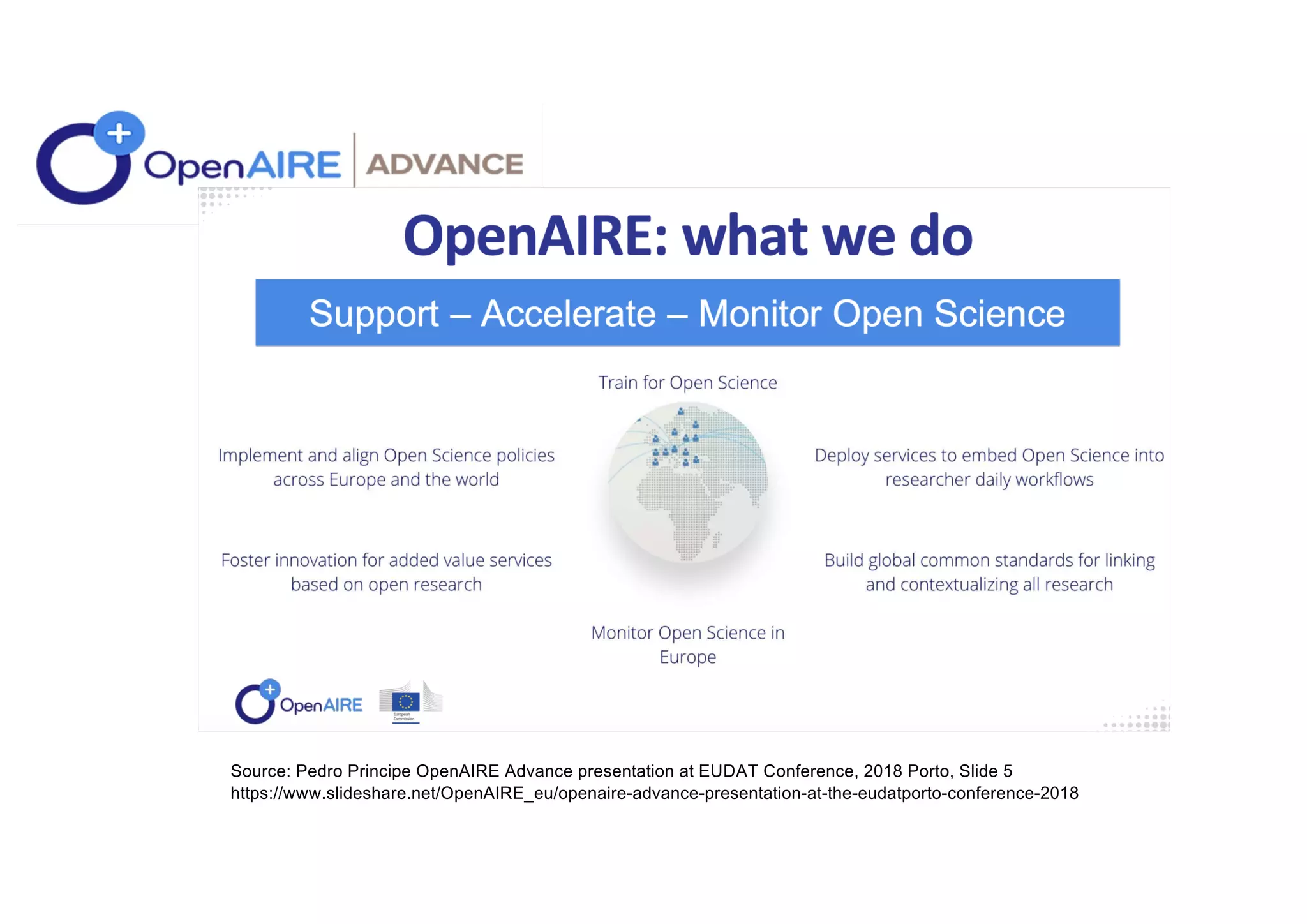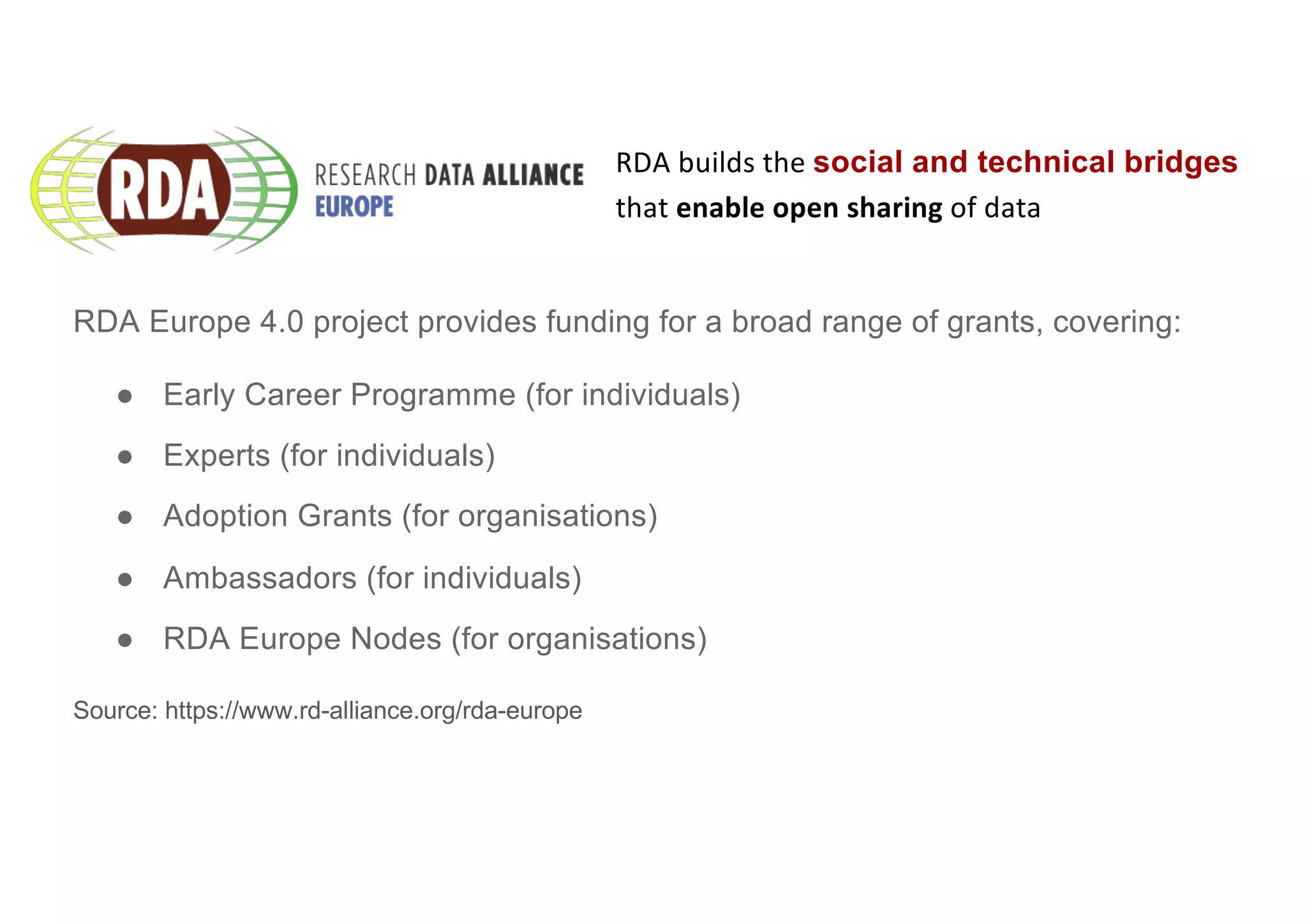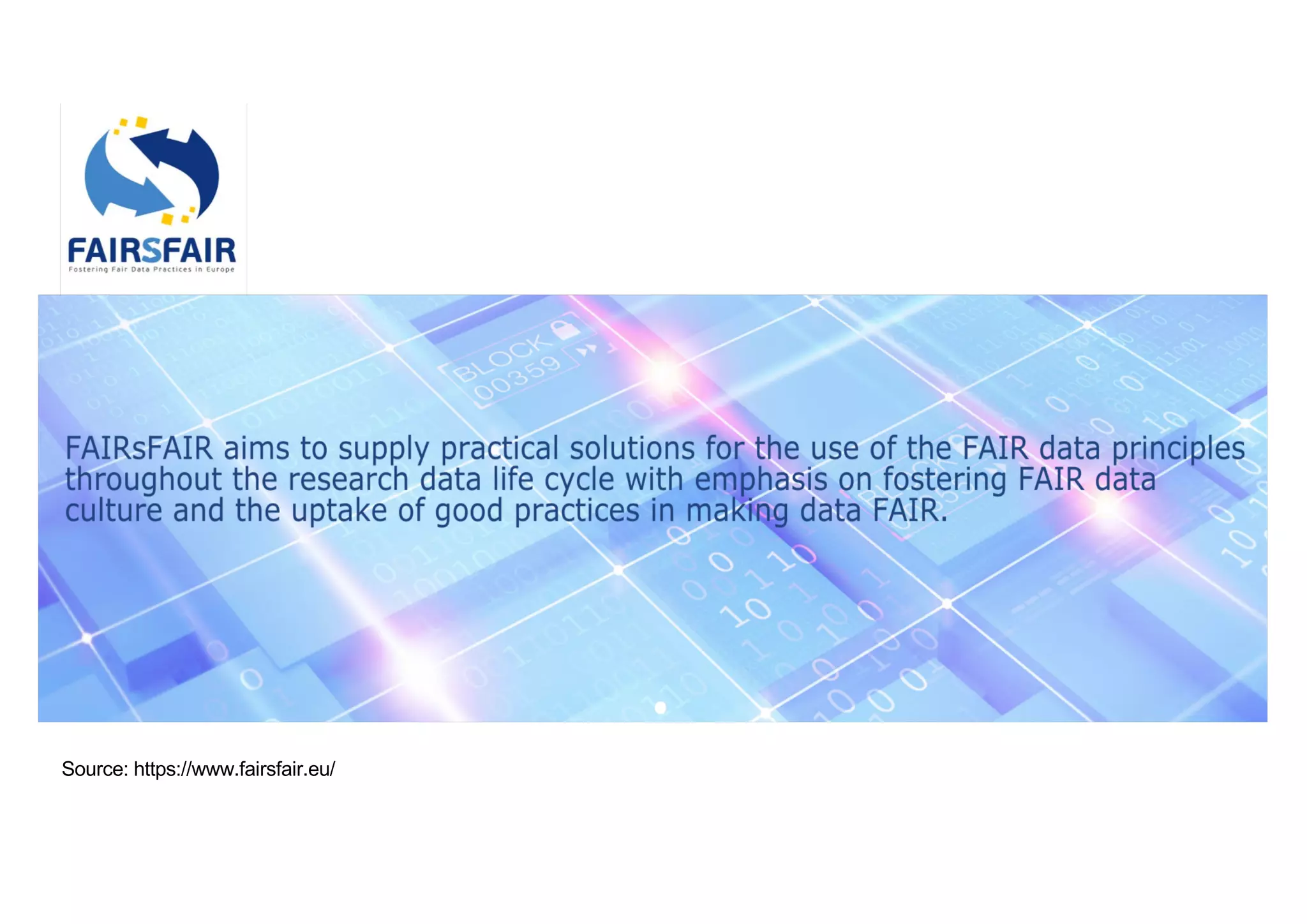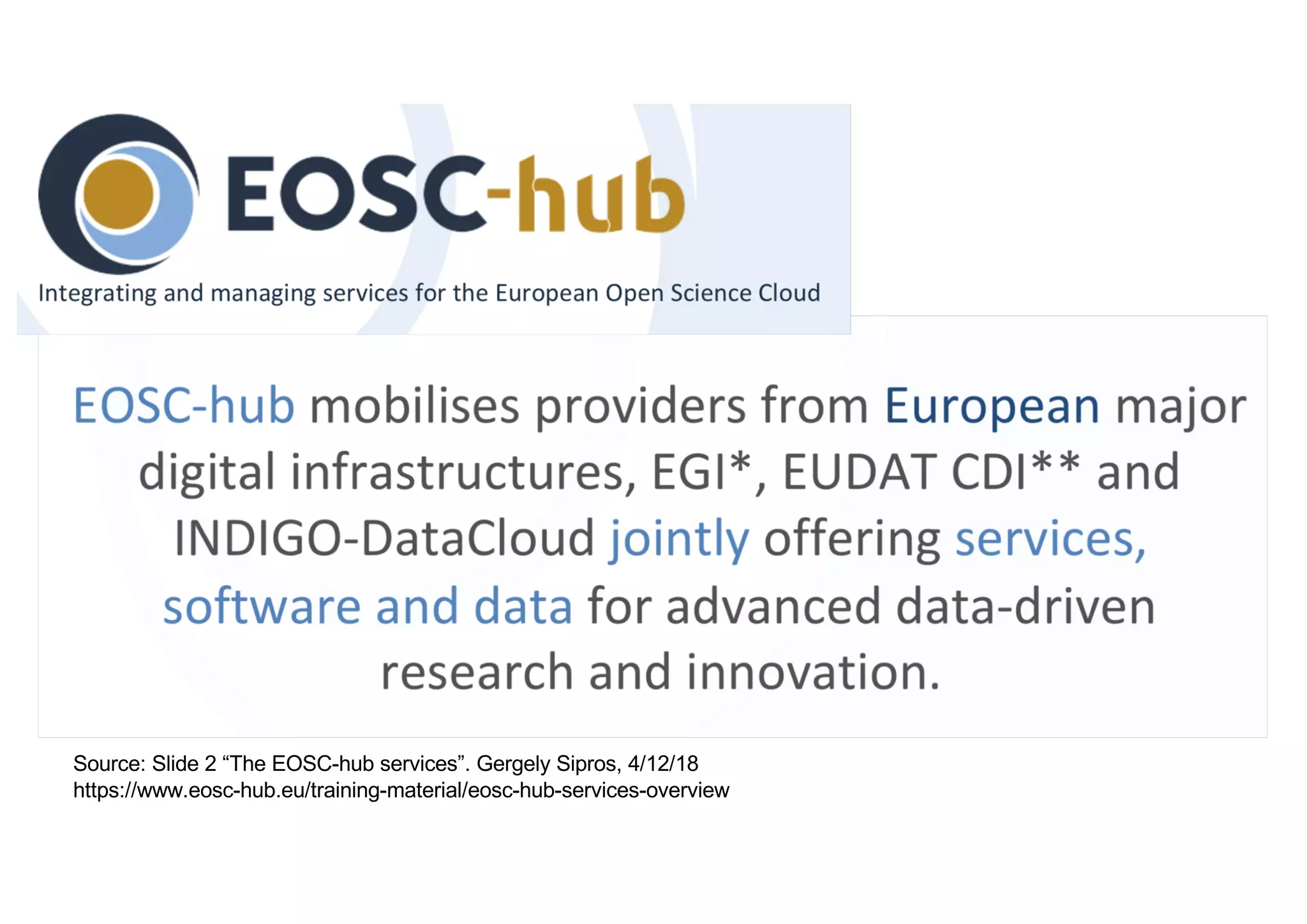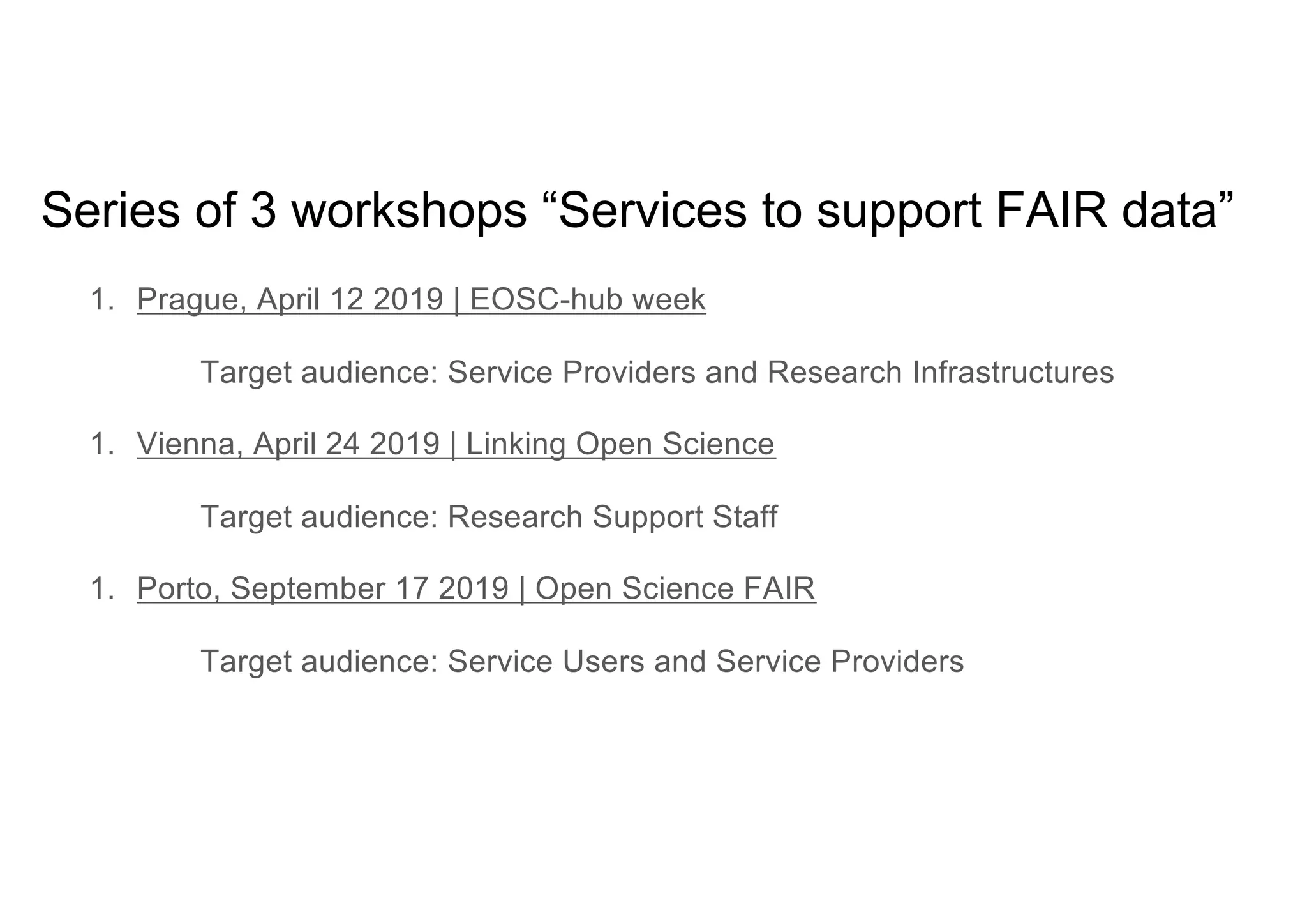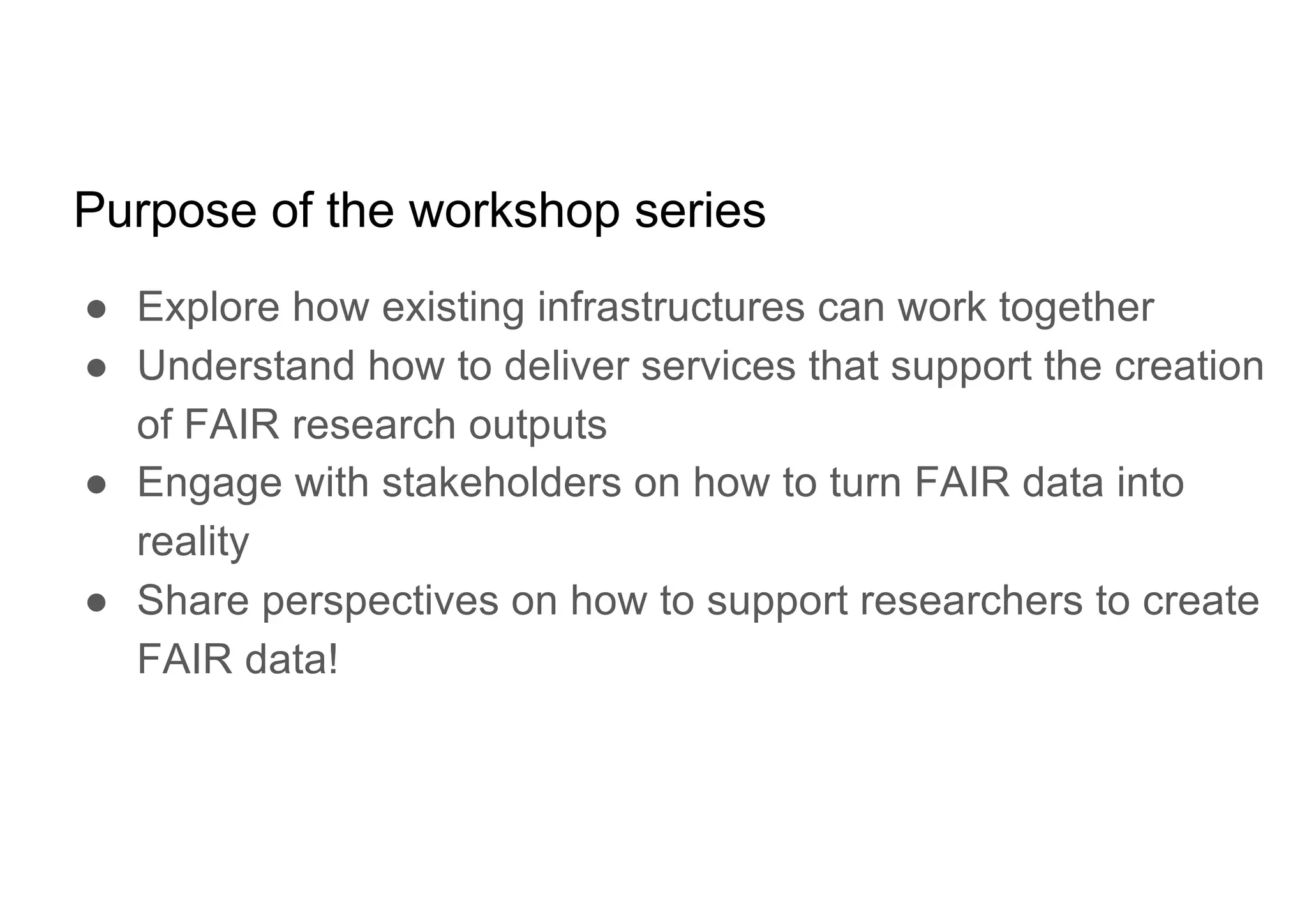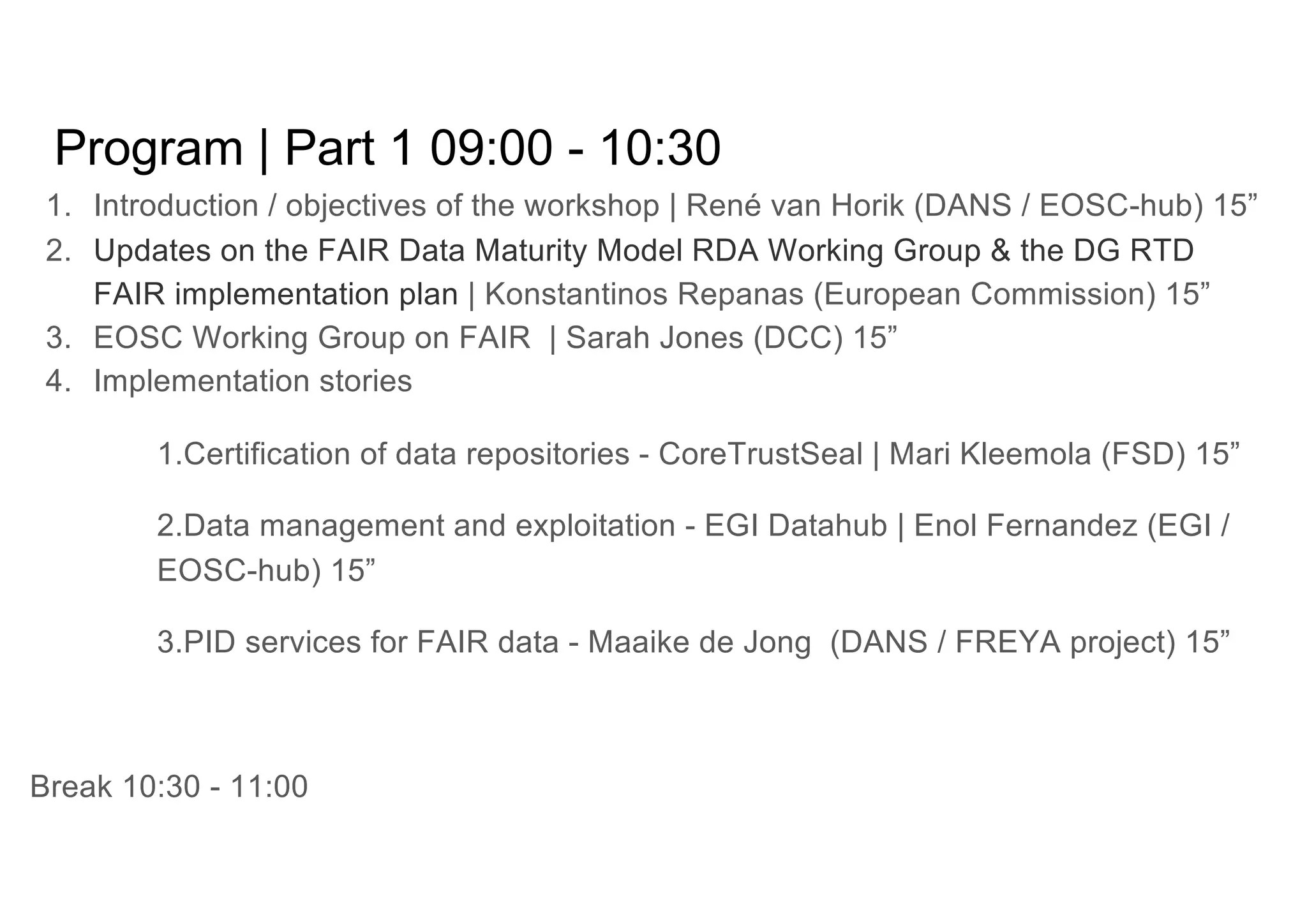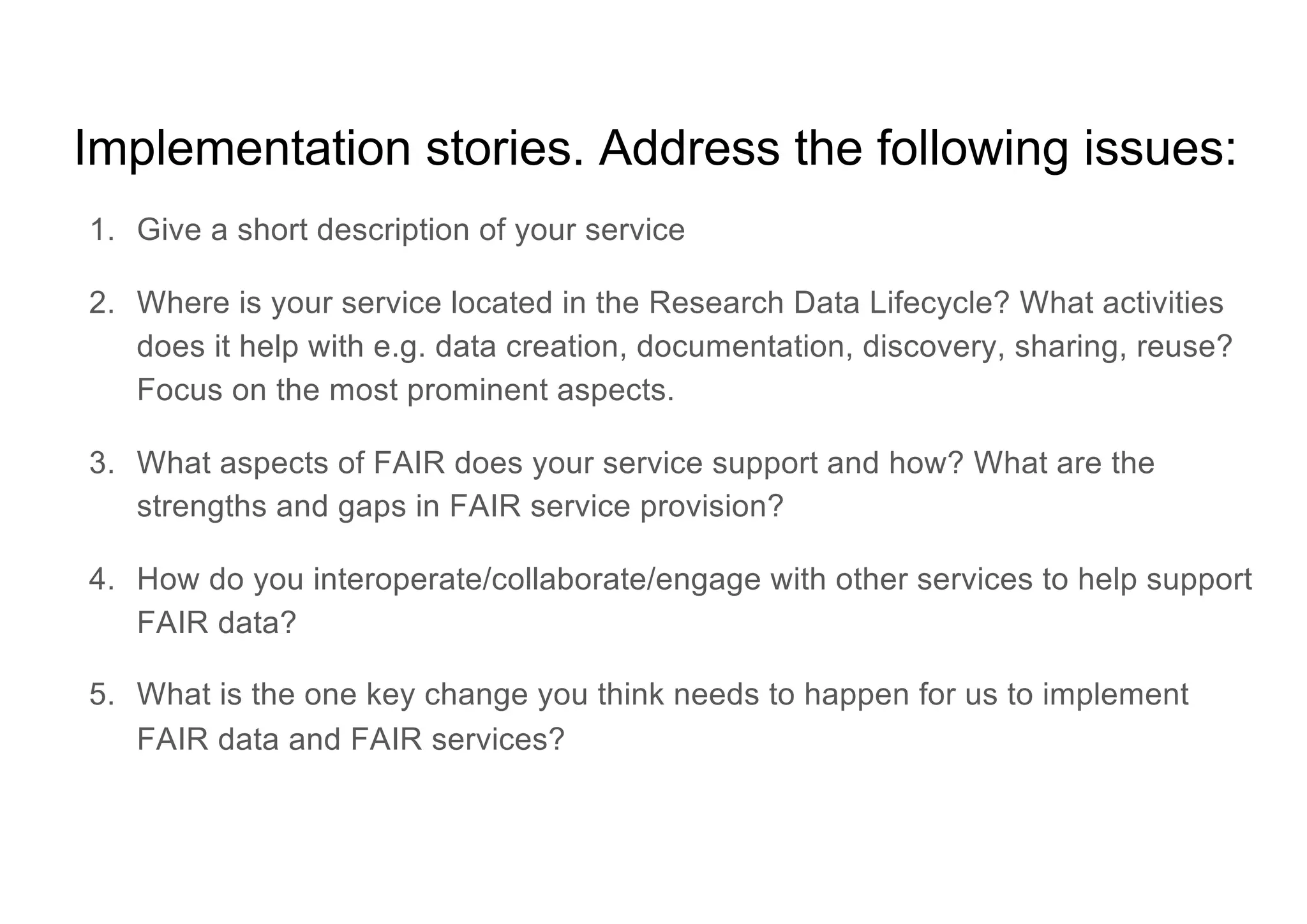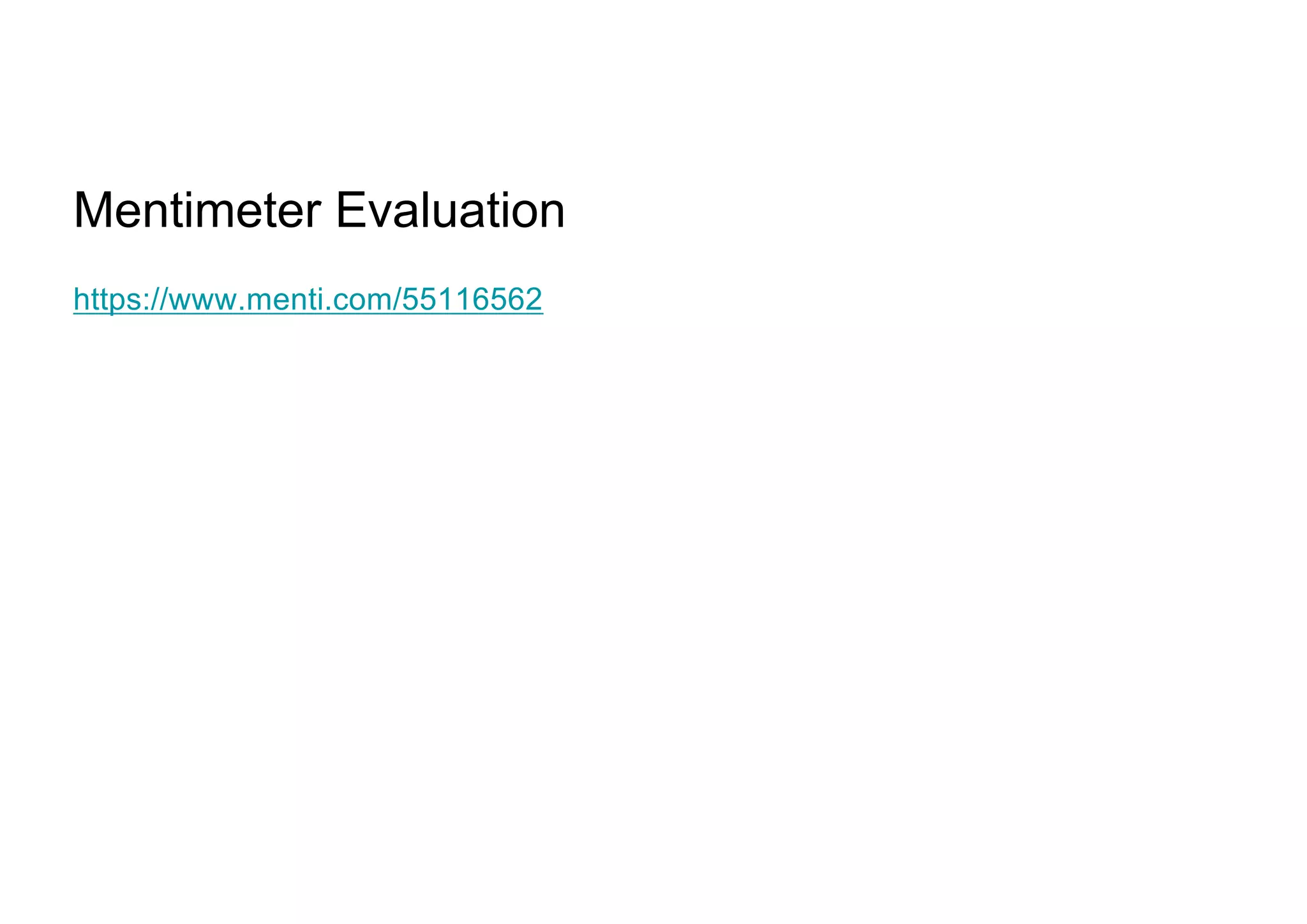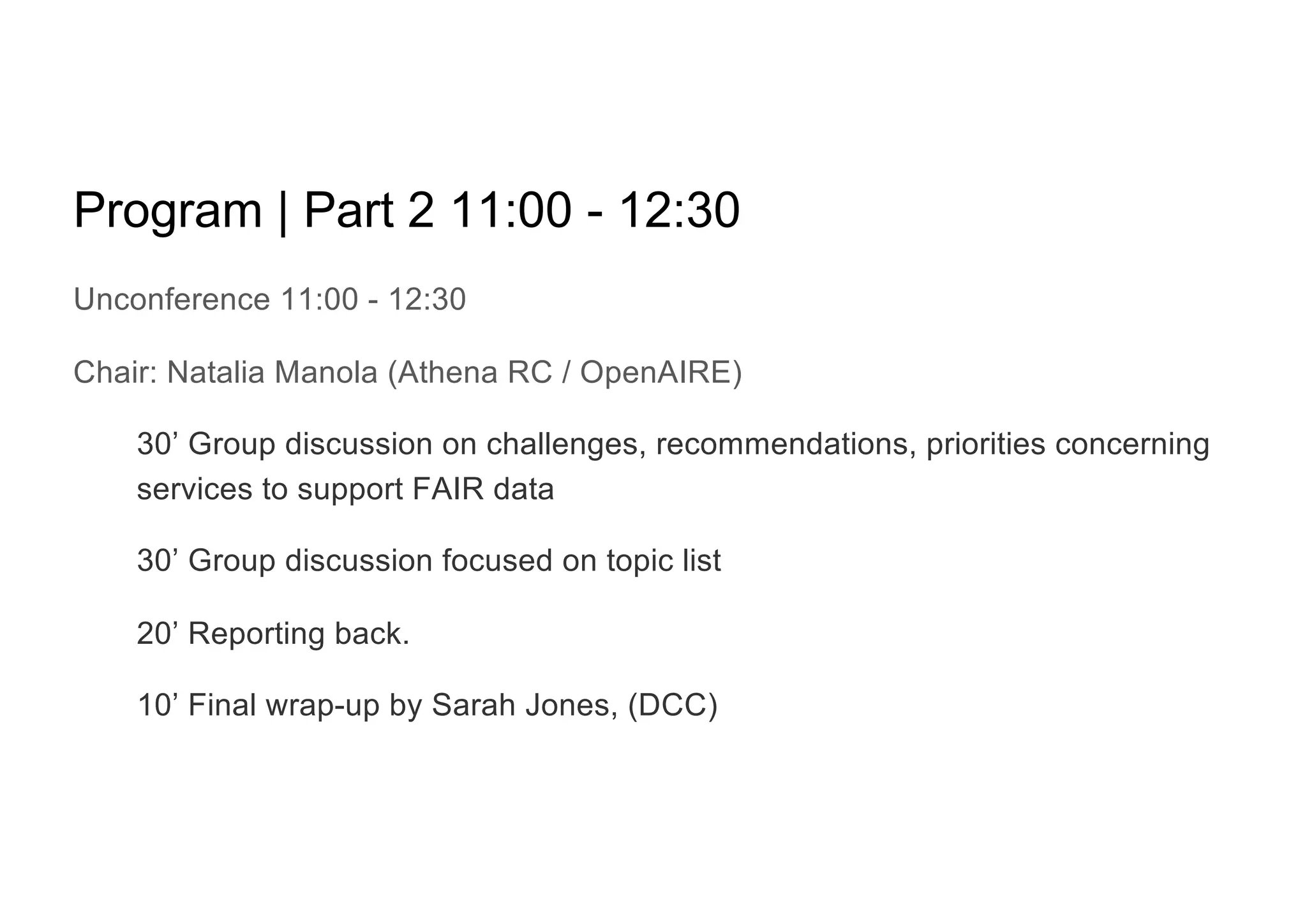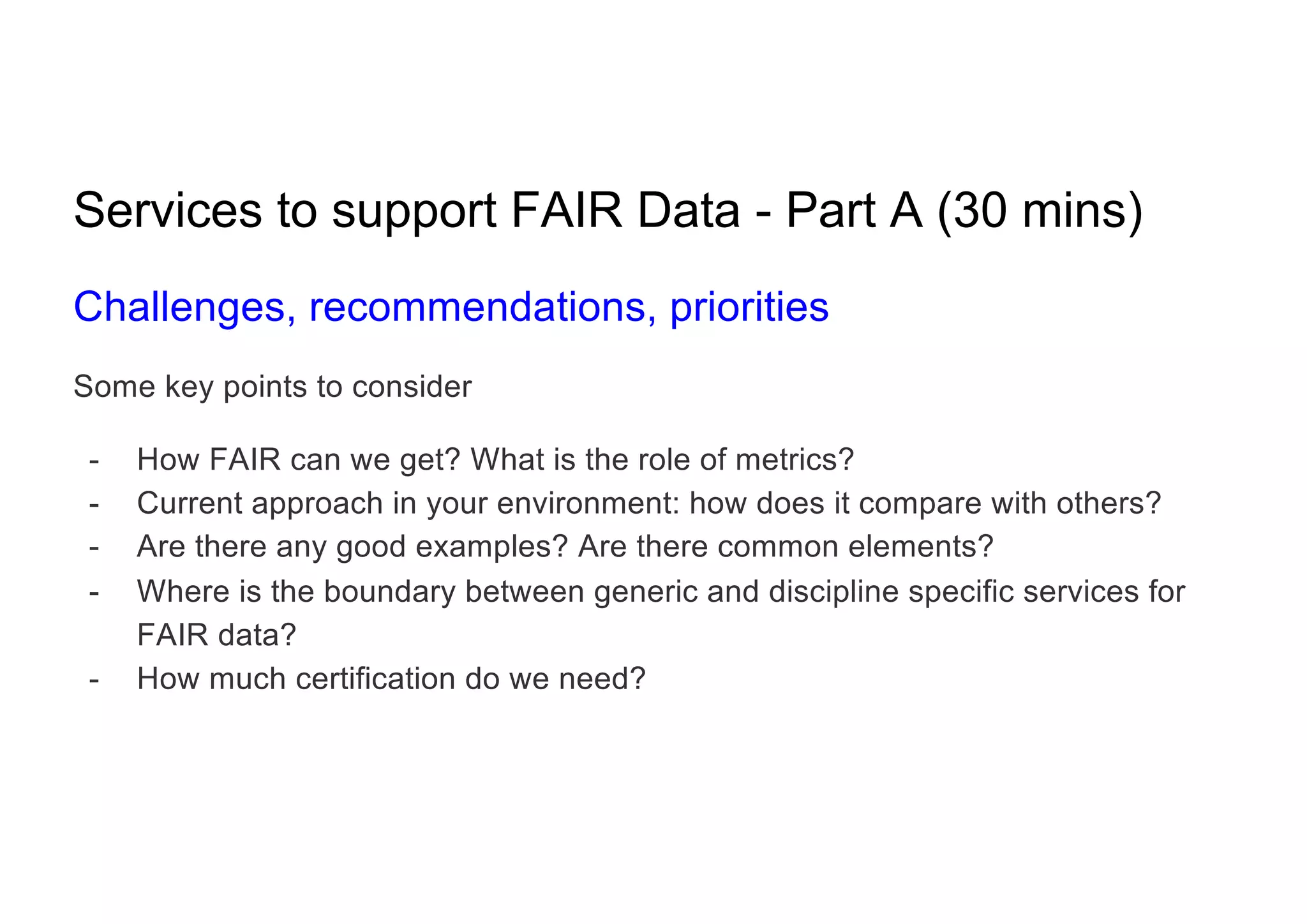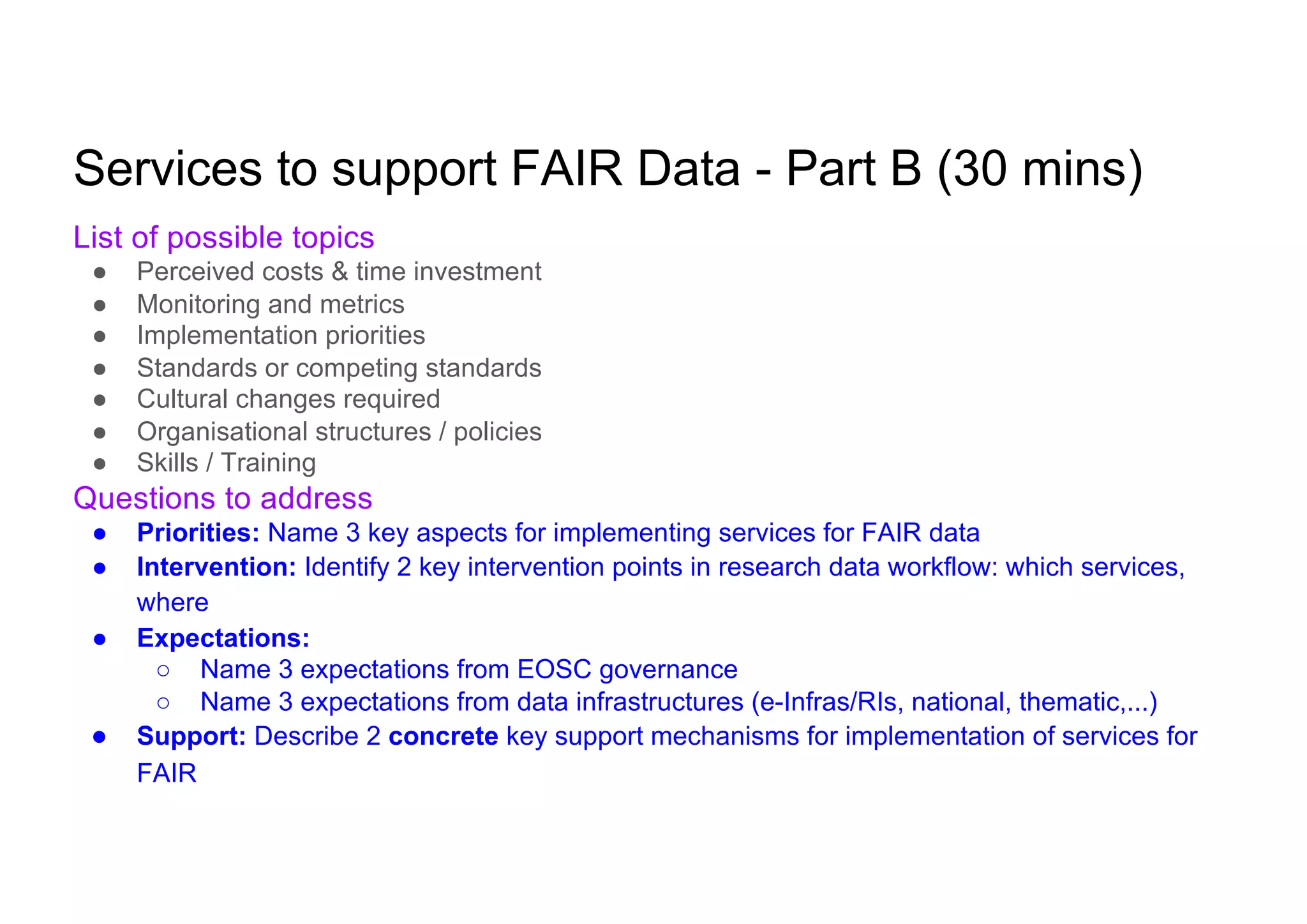This document summarizes a series of workshops on services to support FAIR data. The workshops aim to explore how existing infrastructures can collaborate to deliver FAIR services, understand how to create FAIR research outputs, and engage stakeholders on implementing FAIR data. The first workshop will take place in Prague on April 12, 2019 and feature talks on the FAIR data maturity model, the EOSC working group on FAIR, and implementation stories from data certification, management and PID services. Participants will then break into groups to discuss challenges, recommendations and priorities for FAIR data services.
